- Home
- ILIL ARBEL
Miss Glamora Tudor!: The New Chronicles of Barset: Book One Page 2
Miss Glamora Tudor!: The New Chronicles of Barset: Book One Read online
Page 2
“Miss Tudor doesn’t hold with early hours,” said the housemaid in a voice that revealed her deep admiration.
“That is fine,” said Jessica. “We shall see her at lunch, I hope.”
“Yes,” said the housemaid. “And Miss Jessica, she has such a lovely nightgown, purple flowers and lace.”
“Really?” said Emma, interested.
“Yes, miss, and she was putting on that red lipstick. I told Cook, and she said she was set to buy it if they already have it in the Barchester stores.”
“Thank you,” said Jessica, horrified at the thought of Cook wearing the orange-red lipstick. “You can take the tray now.”
“I wonder what she will wear for the Feet,” said the housemaid, as she was leaving with the tray. “Lovely silk I’m sure.”
“She means the Fete,” explained Jessica, noticing Edmond’s perplexed look.
The morning was beautiful, light shimmered on the trees, birds made the usual loud noises, and the scent of suitable flowers filled the air. Nature, gleefully waiting for the opportunity to ruin the Fete with summer storms and high winds, decided to be deceptively gracious for a while.
“Cousin Jessica, Edmond wants to meet Cousin Aubrey,” said Emma. “He is interested in writing plays.”
“Now this is strange,” said Jessica. “Glamora told me that Edmond, or Hank, as she calls him, has his heart set on the cinema, and she is considering breaking her usual rule and getting him a role for a second film with her.”
Edmond became pale with apprehension. “No, I never wanted to make a second film,” he said. “Heaven forbid. I want to be a playwright”
“Well, well,” said Jessica mildly. “Another complication. And look – a car is coming. The biggest complication is arriving – Mrs. Hermione Rivers is sure to be in it. Let the games begin…”
Chapter Two
“I can just see you,” said Mrs. Rivers enthusiastically, “standing on the open air car on the Orient Express, the wind blowing through your dark auburn hair. Nestor Chardonay, still unaware that you have boarded the train, is inside, drinking a glass of sherry before dinner, when he suddenly turns his head and sees you, silhouetted against the pink sunset sky. Of course I will insist on Technicolor, no black and white for this film.”
“But Mrs. Rivers, is there an open air car on the Orient Express?” asked Emma. Mrs. Rivers seemed irritated by the question. “I believe so, but I will check, Miss Lover. I am always careful that My Work is accurate in all its details. Of course, we can always make it an open window.”
“But then she would not be properly silhouetted against the pink sunset sky, Mrs. Rivers.” said Edmond. “The window frame will interfere with the effect you want. If I were writing this scene, I would have her sitting in the dining car, her face lit from below with a single candle, showing its perfect beauty. And perhaps a white carnation or a gardenia in a crystal vase nearby…”
“Perhaps you are right,” said Mrs. Rivers, looking at Edmond with a new interest. “It sounds quite dramatic.”
“I remember a photograph of Marlene Dietrich, just like that, but in black and white… yes, I think it is a very good idea, Edmond,” said Jessica.
“Did you say dark auburn hair?” asked Miss Tudor suddenly. “I only had it once, when I played an Irish heroine. I am not sure auburn goes with my eyes…”
“If you agree to act in the film, Miss Tudor, I will gladly change the auburn hair to any colour you prefer,” said Mrs. Rivers. “At least read the book to help you decide.” Glamora ignored her and examined a perfect fingernail with care.
“The book is fascinating, Mrs. Rivers,” said Miss Merriman hastily, trying to save the situation. “I particularly liked the time they spend in Vienna. I was there, once, with Lady Pomfret, not the current one, but my Lady Edith Pomfret, years ago. Your book evokes the place perfectly.” Mrs. Rivers looked gratified and smiled at Miss Merriman. “I spent a whole day there, Merry, researching the city,” she said. “One wants to be authentic, of course.”
“Have you prepared your speech for tomorrow, Miss Tudor?” asked Lord Pomfret. Glamora smiled at him sweetly, continuing to ignore Mrs. Rivers who was still waiting for her answer. “Yes, of course, it’s the same speech I gave two years ago when I opened a hospital. It’s quite the same thing, really, opening a Fete; I just had to change the names. I also used it last year, in a ceremony connected to the Queen’s coronation.”
As so few people were gathered around the table, the conversation was general, and the silence following this stunning statement became uncomfortable, since even Jessica was at a loss for an answer. Everyone tried to imagine how a hospital speech could be changed into a coronation speech, and then into a fete speech, without much success. Miss Merriman, with her infinite tact, decided to change the subject.
“Miss Lover, I understand you have almost finished school? Would you tell us what are your plans for the future?”
“I am interested in fashion, Miss Merriman. I would love to go to school in Paris, if my parents can arrange it for me.”
“I am sure that between your parents and us, darling, we will manage that,” said Jessica kindly. “Emma has great talents in this direction, we all believe.”
“Why, thank you, Cousin Jessica,” said Emma, a little embarrassed. “I don’t know about talents, but I am so interested in anything that has to do with clothes or costumes. I have thought about costume design for the stage as a possibility, too, but either way I must have the right training if I want to get a good job.”
“She reads all the Madame Koska books,” said Jessica, laughing. “I remember giving her the first one when she was ten. She was always dressing up in my stage clothes.”
“This is true,” said Emma. “I am not much of a reader, but Madame Koska books tell so much about clothes, so I can’t put them down.”
“Mrs. Morland will probably be coming to the Fete,” said Lord Pomfret. “Have you ever met her, Miss Lover?”
Emma flushed with joy. “You mean I can meet Mrs. Morland, Lord Pomfret? The authoress of the Madame Koska books? Really?”
“I can’t see why not,” said Lord Pomfret kindly. “She is an old friend.”
“Maybe you could design for the cinema, too,” said Glamora, who had not been listening and obviously followed her own train of thought, if what was going through her mind could be called that. “Sometimes the costumes are stunning. I’ll never forget the dresses that were designed for me for the film about Nefertiti, the Egyptian beauty, and Julius Caesar…”
“I thought Julius Caesar was associated with Cleopatra, Miss Tudor,” said Edmond, surprised.
“Well, yes, Julius Caesar was in love with Cleopatra, too, and I made a film about their romance as well, but this was much earlier in my career, so perhaps he had forgotten Cleopatra by the time he met Nefertiti. I really don’t remember the historical part too well, you have so much to learn when you try to memorize a script, you can’t just sit there and read history. But The Sun Queen was about the young Widow Queen Nefertiti, who was bravely trying to rebuild Egypt after the death of her beloved husband, Akhenaton, who worshipped the sun god and had been killed by the priests of the other gods. There was a terrible rebellion and they destroyed many cities. Nefertiti squashes the rebellion with the help of her old friend, Alexander the Great, who then goes off to conquer the rest of the world, and she thinks she will never love another man, and will devote her life to Her Country. And then Julius Caesar comes to Egypt, and he is so handsome and gracious, let’s see, who played him? I think my leading man was Brett Montague… no, he was in that Italian film… I know, it was Ricardo Flint, at least I am almost sure, and she falls in love with him and together they build all the pyramids of Egypt but then she falls off the Sphinx in a horrible accident and dies. I had such a marvelous dying scene, lying in the sand and telling Julius that the fate of Egypt was in his hands, but he can’t live without me and so he commits suicide by letting an adder, which is a kind of a sna
ke, bite his hand, and we die together. Such costumes, Miss Lover, you cannot imagine. I must show you the photographs sometime.”
While the rest of the party sat with their mouths slightly open with amazement at this innovative rendition of ancient history, Emma, who was splendidly uneducated since she was attending one of the best schools in London, was thrilled by the thought of the marvelous Egyptian attire. “Oh, please, Miss Tudor, I would so much love to see them!” she said enthusiastically.
“I don’t have many here, of course, just one album that I carry everywhere,” said Glamora, gratified by the young girl’s enthusiasm. “I’ll show it to you right after dinner, if you like. Of course there are costumes from other films there as well.”
“That is even better,” said Emma. “I can’t wait.”
After dinner, as they were having coffee in the drawing room, Glamora said, “Hank, darling, would you go up to my bedroom and get the album from the top left drawer?” Edmond got up and went to Miss Tudor’s bedroom without saying anything.
For some reason, Emma did not like it. Not that what Edmond did or did not do mattered, oh no, certainly not, but thinking that he would possibly be fingering the purple flowers and lace nightgown and other intimate apparel that were probably resting in this top drawer, and which Emma clearly knew were magnificent beyond description, did not please her. Before she could think any further about it, Edmond returned with the album, and handed it to Miss Tudor.
Emma forgot everything in her ecstasy over the costumes. Not only ancient Egyptian garb resided in this precious album, but everything from antiquity to the modern age, including Biblical, Medieval, Renaissance, Victorian, and some epochs that really could not be pinpointed, even by Emma whose sole interest in history concentrated on clothes. She was particularly enchanted by a form-fitting dress of shiny silk that ended as heavy waves lying on the ground around Glamora’s hidden shoes, and topped with a headdress that featured many feathers that were almost as tall as Miss Tudor. The immense jewellery added to the mystique. “This was from Princess of Neptune,” said Miss Tudor. “One of the two science fiction films I made. The other was Amazon Tiger Queen of Venus, but I don’t have any of the costumes here. I will show them to you next time we meet, Miss Lover.”
The next day, after lunch, the party proposed to go to the Fete. “I will stay here,” said Mrs. Rivers. “I have to devote some time to My Work.”
“Very well,” said Jessica. “A little peace and quiet will probably result in some very exciting scenes, Mrs. Rivers. Where will the spirit lead you this time?”
“To Hollywood,” said Mrs. Rivers, smiling. “I have a new idea about the world of films I am simply longing to write…” Glamora shot a glance at her but said nothing. “A middle-aged actress with an illustrious career behind her, but still very lovely and young-looking.”
“And a most handsome young actor falls for her?” asked Jessica with a perfectly serious face.
“Yes, how did you guess?” asked Mrs. Rivers, genuinely surprised. “That is exactly what I had in mind.”
“Fascinating,” said Jessica. “I will make a point of reading it.” Glamora smiled at Mrs. Rivers with a complete lack of interest. “How nice,” she said, and navigated out of the dining room, holding Lord Pomfret’s arm tightly, which by then, after one day of Glamora’s tender attachment, began to hurt quite badly. But of course he said nothing at all, and led his guests to the car.
“Since Hermione is not coming,” said Lord Pomfret, “we can easily squash into one car. Edmond, as you are so big, let’s dispense with good manners and place you next to me, while our three slender ladies will fit comfortably enough in the back seat.” Everyone laughed and piled into Lord Pomfret’s not very elegant car.
They arrived quite early, but many visitors were already enjoying themselves by looking at the exhibits of rabbits, chickens, and flowers. There were also displays of peasant embroideries, mostly rather dirty Mixo-Lydian creations, but also some Greek and Italian, sent by various Barchester expatriates. Glamora immediately swept Edmond away and onto the platform, but Lord Pomfret remained on the ground to arrange a later meeting place with Jessica. They planned to gather at the tea tent.
Suddenly Lord Pomfret put his hand in his pocket and looked unusually dismayed. “Blast this woman,” he said to Jessica. “Who?” asked Jessica, surprised. “Hermione, of course,” said Lord Pomfret furiously. “Merry typed a list of Miss Tudor’s accomplishments for me, to mention when I present her. I don’t remember a single blessed film she made. And yesterday, Hermione borrowed it for a few seconds, she said, just to refresh her memory before discussing her book with Miss Tudor. She never returned it and I forgot.”
Jessica laughed. “Try to remember the current Fever in Peru and then mention the one about Nefertiti and Julius Caesar,” she said. “What was the title? Something like The Widow of Egypt? No, that sounds awful, it could not be. I know. It was The Moon Queen.”
“Moon? In Egypt it was probably the sun, rather,” said Lord Pomfret. “Very likely The Sun Queen. I’ll remember that. Fever in Peru and The Sun Queen.” He kept mumbling the titles to himself as he was approaching the platform.
The crowd gathered in front of the platform and most people sat down. Everyone looked with admiration at Miss Tudor, who was sitting in the middle, between Lord Pomfret and Sir Edmund Pridham. She really did look magnificent in her wonderful New Look outfit, with a flowing skirt, a short, belted jacket and a soft though tailored blouse, and the women stared at her stockings, which were the exact shade of soft violet-gray as her skirt, as dictated by Monsieur Dior. Edmond sat on the other side of Lord Pomfret, and tried to look charming and hide his embarrassment.
Cook settled herself comfortably on two chairs to better distribute her considerable weight, which she nevertheless carried with extreme lightness and agility. Next to her sat her young niece, named Rita after one of Glamora’s rival stars, and the housemaid whose name we have not yet invented and possibly will never have the occasion to do so.
“Did you see her shoes, Rita?” asked the housemaid with reverence. “Such high heels. I would fall down.”
“Yes, I seen them,” said Rita. “Lovely. I got a book from the libery last week about this great lady and she is wearing such shoes for a ball, and Lord Eastbrook is ever so charming and he tells her how much he admires her shoes.”
“And what happens next?” asked the housemaid, holding her breath and obviously hoping for the worst.
“He is seduking her in the conservatory,” said Rita. “And then she has a baby and her Cruel Father sends her away in the rain and storm.”
“Why would he send her away?” asked the housemaid, surprised. “A baby is nothing. My sister just had her third, and the father had to return to his regiment, to keep Old Staylin in his place, he said. Lovely man.”
“The gentry is different,” said Rita knowledgeably. “They must be married first.”
“But I wanted to know what the lord did in the conservatory,” said the housemaid, sticking to the point.
“He gave her diamonds,” said Rita. “They always give diamonds to the ladies.”
“My sister never got diamonds,” said the housemaid. “He did give her some nice stockings, though. Real nylon.”
“Then she wasn’t rightly seduked,” said Rita with conviction. “You must have diamonds for that. Or at least rubies. I read ever so many books about it in the libery so I know.”
“That will be quite enough, girls,” said Cook severely. “One would think no one had brought you up properly.” But her words lacked conviction because she was wearing “Hibiscus Frenzy,” the red-orange lipstick which had already come, happily, to the Barchester stores. Besides, she listened to the seduction story with interest. “Rita,” she added thoughtfully, “did the lady change her shoes with them high heels when she was sent away in the rain and storm?”
“Oh, yes, Auntie. They tooked away her pretty clothes, even the silk dress with no back, and t
he pearls and the diamonds, and the shoes, and made her wear the housemaid’s clothes,” said Rita sadly. The housemaid naturally took offence, but no one noticed because Lord Pomfret got up to make his introduction.
One look at Lord Pomfret and Jessica knew he had forgotten everything regarding Glamora’s films. He looked helplessly at the audience, and saw, sitting at the front row, two very familiar faces. These were Miss Hampton, meticulously dressed in the perfect light tweeds and her amber cigarette holder dangling from her lips, and the slightly disheveled Miss Bent, holding the leash of their faithful dog who was hiding under her chair. A smile lit Lord Pomfret’s tired face. He stepped off the stage, walked up to Miss Bent, and asked, “May I borrow your dog for a moment, Miss Bent?” The dog followed him, looking miserable but resigned, and Lord Pomfret picked him up in his arms. The dog leaned his very large head on Lord Pomfret’s arm and went to sleep.
“Ladies and gentlemen, he started. “This wonderful dog has had many names. His name was changed again and again during the war, every time to celebrate someone who was particularly gallant. He was named Benes, Schuschnigg, Zog, Smigly-Rydz, and Mannerheim, among other names, and I remember them so well because I found them so touching at the time. As peace arrived with its own troubles this dog’s loving owners, Miss Hampton and Miss Bent, felt that no one was gallant anymore. Briefly, they considered calling their dog after the great Mr. Churchill, but they changed their minds because they felt that England had wronged our great leader, who had done so much for us, to such an extent that even calling their dog after him would not be enough. And so they resolved the quandary by simply naming the dog Gallant, and hoping that Gallantry will thus follow into our world. I think it will, and in many ways has already done so. Who can be more gallant than this great actress, Miss Glamora Tudor, who through war and peace, during our most difficult times, has given the English people so much joy? Braving jungle, desert, and mountain, she has opened the past to us in her beautiful films, taken us into the future, and allowed us to escape from our harsh reality whenever we chose to attend the Barchester Cinema. And today, the gallant Miss Tudor has consented to open the Fete for us. Allow me, without further ado, to introduce her to you. Miss Glamora Tudor!”

 ANCIENT ALIENS: MARRADIANS AND ANUNNAKI: VOLUME ONE: EXTRATERRESTRIAL HOLIDAYS
ANCIENT ALIENS: MARRADIANS AND ANUNNAKI: VOLUME ONE: EXTRATERRESTRIAL HOLIDAYS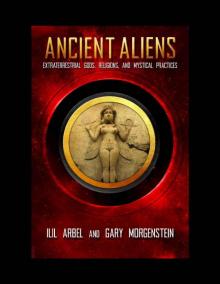 Ancient Aliens_Marradians and Anunnaki_Volume Two_Extraterrestrial Gods, Religions, and Mystical Practices
Ancient Aliens_Marradians and Anunnaki_Volume Two_Extraterrestrial Gods, Religions, and Mystical Practices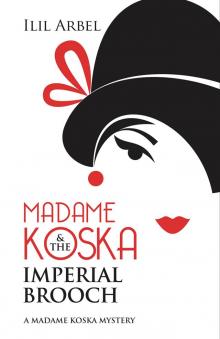 Madame Koska & the Imperial Brooch
Madame Koska & the Imperial Brooch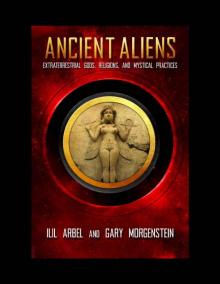 Ancient Aliens: Marradians and Anunnaki: Volume Two: Extraterrestrial Gods, Religions, and Mystical Practices
Ancient Aliens: Marradians and Anunnaki: Volume Two: Extraterrestrial Gods, Religions, and Mystical Practices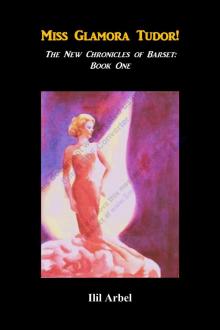 Miss Glamora Tudor!: The New Chronicles of Barset: Book One
Miss Glamora Tudor!: The New Chronicles of Barset: Book One The Cinnabar Box (Guardians of the Earth)
The Cinnabar Box (Guardians of the Earth)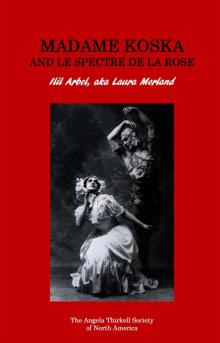 Madame Koska and Le Spectre de la Rose
Madame Koska and Le Spectre de la Rose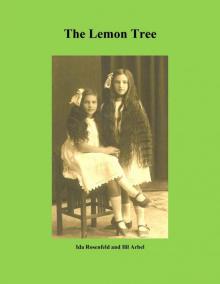 The Lemon Tree
The Lemon Tree Their Exits and their Entrances: The New Chronicles of Barset: Book Two
Their Exits and their Entrances: The New Chronicles of Barset: Book Two